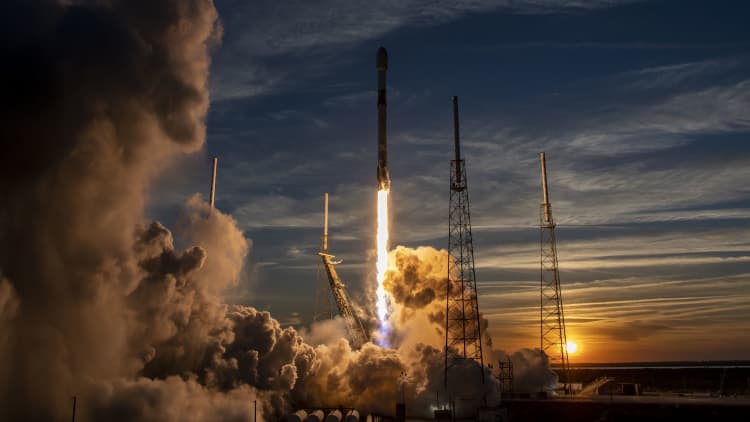[ad_1]
A long exposure photo shows the company’s fourth Alpha rocket mission launching from California’s Vandenberg Space Force Base on Dec. 22, 2023.
Sean Parker / Firefly Aerospace
Investment in the space sector bounced back last year, rebounding closer to the record high of 2021, according to a report Tuesday by New York-based Space Capital.
“Investment in Infrastructure remained strong, accounting for 70% of total 2023 investment and notching its second highest annual record, spurred by countercyclical revenue from government customers,” Space Capital managing partner Chad Anderson wrote in the report.
The firm’s fourth-quarter report found that space infrastructure companies brought in $2.6 billion of private investment during the period. That brought the sector to $12.5 billion in total investment for 2023, well above last year’s $9.3 billion raised but still below the $15.3 billion brought in during 2021.
Top raises during the fourth quarter included funds announced by space companies Firefly Aerospace, Ursa Major, D-Orbit, Stoke Space and True Anomaly.
The quarterly Space Capital report divides investment in the industry into three technology categories: infrastructure, distribution and application. Infrastructure includes what would be commonly considered as space companies, such as firms that build rockets and satellites.
Sign up here to receive weekly editions of CNBC’s Investing in Space newsletter.
Space infrastructure companies have been resilient through the recent downturn. But Anderson also highlighted 2023 as “a year of consolidation,” with 39 merger and acquisition deals across the sector — such as Viasat’s acquisition of Inmarsat and L3Harris’ purchase of Aerojet Rocketdyne.
“We expect to see even more in 2024. The prospect of declining interest rates is boosting equity valuations and improving [leveraged buyout] math, making M&A more likely in 2024,” Anderson told CNBC.
“In 2024 we expect that VCs will be more selective with reserves, letting their low-growth companies run out of cash, in favor of deploying into higher-growth prospects. While we expect to see deal count and volume rebound in the space capital markets, markdowns and write-offs will continue – and this will also lead to more failures and acquisitions,” Anderson added.

[ad_2]
Source link
